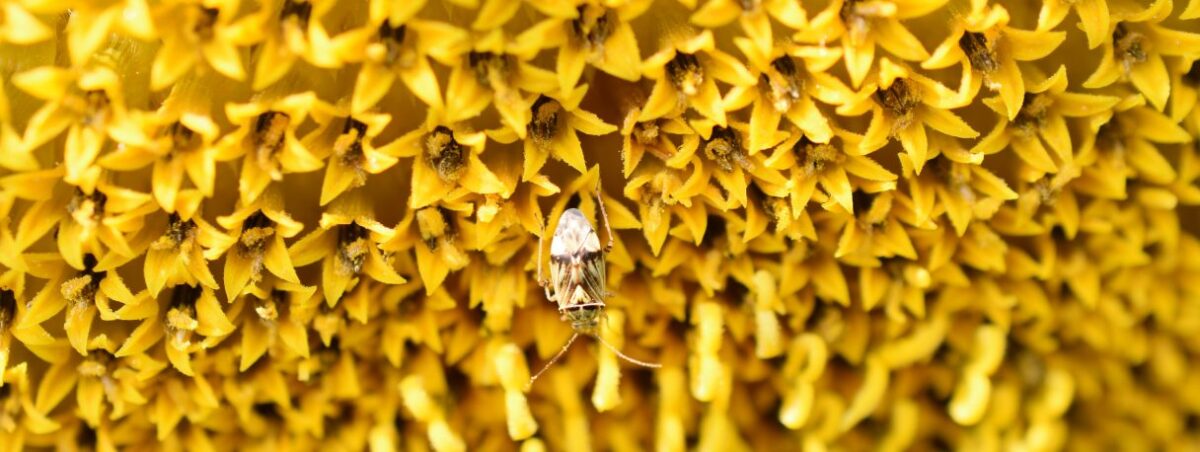Availability of Lambda-Cyhalothrin Insecticide and How It Affects Sunflowers

By Manitoba Crop Alliance
Many major lambda-cyhalothrin products have been made unavailable to Canadian farmers for 2023 due to a label revision. This revision has a significant focus on feed-related commodities, which affects most Canadian commodities, but also includes concerns to human health and safety via consumption.
In sunflowers, Manitobans only had access to one insecticide (Matador) to control lygus bug, which is a significant pest in confection sunflowers due to their ability to negatively affect quality. Matador is now removed from our repertoire, leaving no current chemical options to control lygus bugs in sunflowers. Manitoba Crop Alliance and Manitoba Agriculture are working with industry to determine if an Emergency Use Registration will be possible for the 2023 growing season with any current products that have lygus bug on label but are not registered for use on sunflowers. It is a common occurrence in minor crops to not be included on label, so in these instances it requires a label expansion, which is an extensive process.
Lygus bugs are a major pest of sunflowers because they can cause kernel brown spot, which is a small brown to black spot on the blunt end of the seed. The industry standard allows for a maximum of 0.5% kernel brown spot in confection sunflowers marketed for human consumption. The economic threshold for lygus but in confection sunflowers is one bug per 9 sunflower heads. Each adult lygus bug is capable of damaging as many as 35 seeds per head.
Control of lygus bug is very limited and insecticides (lambda-cyhalothrin) are the most effective option in sunflowers. Cultural options are even more limited. When planning sunflower acres, it is recommended to avoid planting near adjacent canola fields since they are both favourable host crops to lygus bug. Canola does have limited insecticide options available for lygus bug, so in canola-lygus infestation and insecticide application scenarios, those neighbouring lygus bugs will attempt to move out and find another host crop, like sunflowers.
Some environmental and biological control factors from Manitoba Agriculture include:
- Weather: Heavy rainfall may reduce levels of early-instar nymphs of lygus bugs. A study in alfalfa found heavy rainfall reduced first generation nymphs of Lygus lineolaris by 50%.
- Biological Control: Nymphs of Lygus bugs may be killed by parasitic wasps in the genus Peristenus (Hymenoptera: Braconidae); with parasitism being common in weedy alfalfa stands or uncultivated weedy sites but very low in canola. Damsel bugs, assassin bugs, lacewing larvae, big-eyed bugs and crab spiders can prey on lygus bugs. Protecting these natural enemies by avoiding unnecessary insecticide applications may also help to reduce the impact of lygus bugs.
Manitoba Crop Alliance and Manitoba Agriculture will update farmers and industry of any changes in the insecticide market that affects lygus bug control in sunflowers in the near future.

